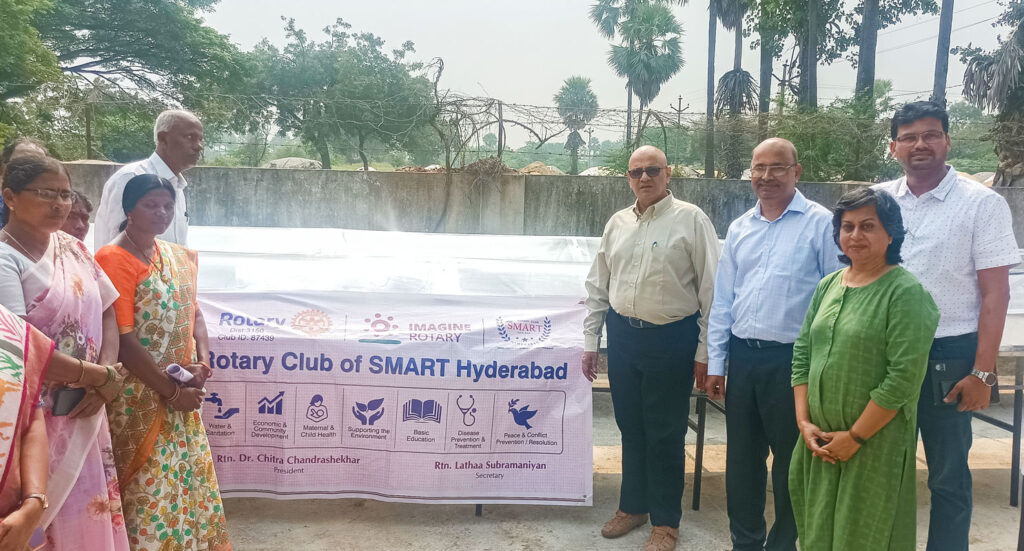
It is heart-wrenching to see or hear news of farmers throwing away their hard grown vegetables/fruits on highways or letting them rot on their land for lack of a decent price.
Now the farmers of Kattangur village near Hyderabad will not be forced to waste their produce harvested after so much toil, thanks to the solar dryer provided by Rotary to their association. Rotary Clubs of Smart Hyderabad and Hyderabad Deccan, RID 3150, have recently sponsored a solar dryer to the Farmers Producers Organisation (FPO) in the village.
The dehydrator removes moisture from vegetables to prevent contamination by micro organisms, thus increasing their shelf life. “In this village these dehydrators are now predominantly used to preserve tomatoes, lemons and mangoes,” says Shantikumar, member of RC Smart Hyderabad, adding that it is a safe method of preserving the produce without use of chemical preservatives.
“The farmers bring the entire harvest to be dehydrated to the FPO campus where we have installed the facility. The drying process takes 48 hours. The dehydrated produce can be stocked until the organisation takes care of the marketing,” says club secretary Lathaa Subramaniyan. FPOs are aggregation of farmers who come together to gain better bargaining power in the purchase of inputs, obtaining credit and selling the produce.
“Fluctuating crop rates is a huge challenge. Sometimes the prices dip so low that farmers prefer to dump their yield on the highway or let them rot on the land to act as fertiliser for the soil.” The dehydrator helps them store seasonal fruits such as mangoes and sell them to food majors for making jams or sauces. “The dryer supplier has agreed to buy the dehydrated produce from the FPO and market it to the food industry,” says Shantikumar. The FPO passes on the price benefit to the farmers, charging 3 per cent as processing fee. “Their incomes will go up by at least 25 per cent,” he adds.
The actual cost of the dryer is ₹8 lakh. Post subsidy from NABARD, the club procured it for ₹1.2 lakh. “Some farmers are still reluctant to use it as they are unsure of its success. Slowly they will gain confidence and understand its huge benefits. It is not even a month now since we have installed it,” smiles Lathaa.
The FPO has installed four solar refrigerators on its premises for cold storage of the agricultural produce. It was bought at ₹15 lakh with the help of a loan and a subsidy from NABARD. “Now the FPO wants us to set up a processed food unit, such as pickle-making, in their campus to provide employment to the village women. The income generated from the unit may be used to repay the loan,” he says. The FPO stands on a 3-acre land in Kattangur, 120km from Hyderabad.







